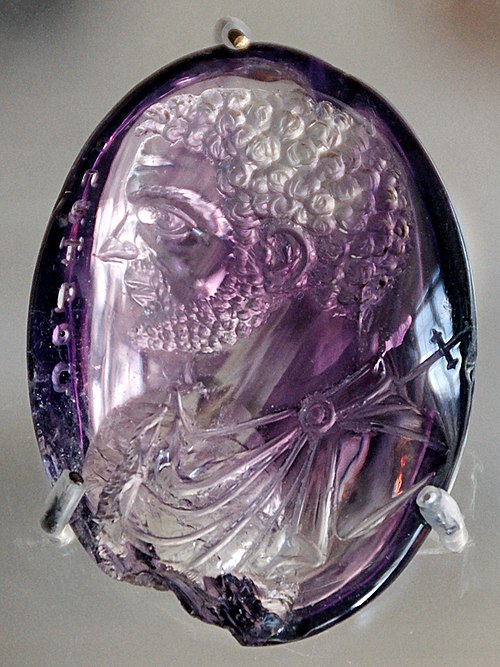Tourmalinenoun
A complex black or dark-coloured borosilicate mineral, compounded with various chemical elements and considered a semi-precious stone.
Tourmalinenoun
A transparent gemstone cut from it.
Tourmalinenoun
A mineral occurring usually in three-sided or six-sided prisms terminated by rhombohedral or scalenohedral planes. Black tourmaline (schorl) is the most common variety, but there are also other varieties, as the blue (indicolite), red (rubellite), also green, brown, and white. The red and green varieties when transparent are valued as jewels.
Tourmalinenoun
a mineral that is a complex borosilicate and hydroxide of aluminum containing iron and magnesium and calcium and lithium and sodium; it is usually black but occurs in transparent colored forms that are used as gemstones
Tourmaline
Tourmaline ( TOOR-mə-lin, -leen) is a crystalline boron silicate mineral compounded with elements such as aluminium, iron, magnesium, sodium, lithium, or potassium. Tourmaline is classified as a semi-precious stone.
Amethystnoun
A transparent purple variety of quartz, used as a gemstone.
Amethystnoun
(uncountable) A purple colour.
Amethystnoun
(tincture) The purple tincture when emblazoning the arms of the English nobility.
Amethystadjective
Having a colour similar to that of the gemstone
Amethyst
A variety of crystallized quartz, of a purple or bluish violet color, of different shades. It is much used as a jeweler's stone.
Amethyst
A purple color in a nobleman's escutcheon, or coat of arms.
Amethystnoun
a transparent purple variety of quartz; used as a gemstone
Amethystadjective
of a moderate purple color
Amethystnoun
a precious stone consisting of a violet or purple variety of quartz
Amethystnoun
a violet or purple colour
Amethyst
Amethyst is a violet variety of quartz. The name comes from the Koine Greek αμέθυστος amethystos from α- a-, and μεθύσκω (Ancient Greek) methysko / μεθώ metho (Modern Greek), , a reference to the belief that the stone protected its owner from drunkenness.
























